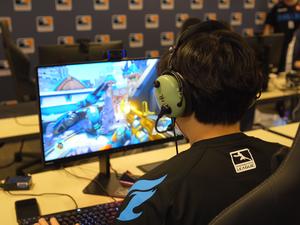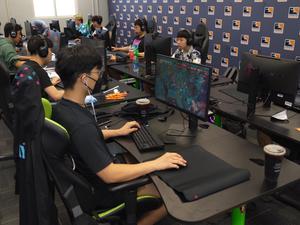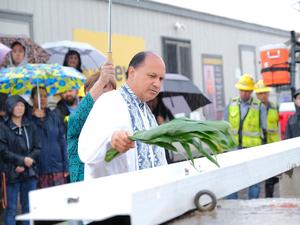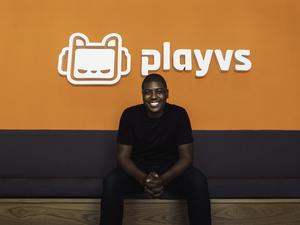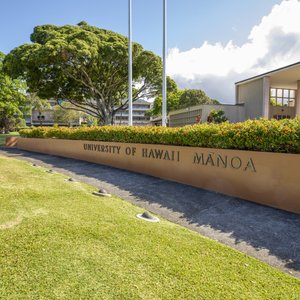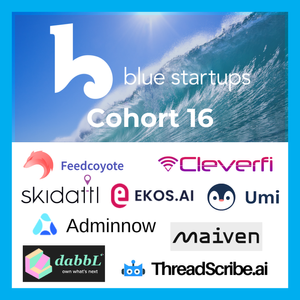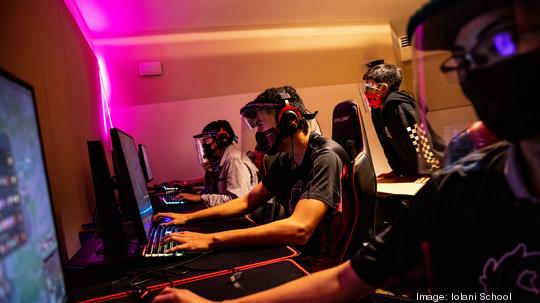
Roosevelt High School Principal Sean Wong laughed at the notion that his past self would ever have expected to see organized video gaming in Hawaii schools.
“Far from it,” Wong told Pacific Business News.
Yet he has come around, as Roosevelt is among the dozen-plus high schools statewide to field competitive esports teams at the club activity level.
Others have been less accepting since the Hawaii High School Athletic Association first introduced it as an unofficial sport in 2019.
“There’s still that side or group of people that think gaming shouldn’t be in education,” Wong said. “But I think there’s a time and place for it. If students can still focus on what they need to focus on … and if they can become successful and [it] opens up more doors down the road for them, that’s something I’ll fully support.”
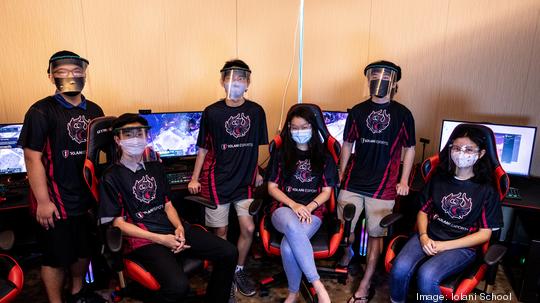
The HHSAA, which partners with the gaming platform PlayVS to coordinate competition between some of its members in titles like League of Legends and Rocket League, has pushed to make esports a sanctioned sport a la football, basketball or volleyball, touting the $1 billion-plus in annual world esports revenue and the opportunity for college scholarships.
But esports is not there yet, and numbers suffered during the pandemic when some teams could not meet in person; participation peaked at 22 schools in spring 2020, on the heels of Hawaii Pacific University hosting the HHSAA’s unofficial championships at its esports arena in January of that year.
Senate Bill 249, which would’ve made esports an officially sanctioned HHSAA state sport, stalled in committee last month. For now, it will remain a club activity.
“I hope we can grow it at the HHSAA level, but if it no longer falls under the HHSAA I wouldn’t be sad, because I know the program’s still for the benefit of the kids, more than anything,” Natalie Iwamoto, who oversees esports for the HHSAA, said.
Some schools have seen progression through the pandemic, and have even expanded to regional play with West Coast schools on the Mainland.
Iolani School has built one of the state’s largest and most successful programs to date, with 60-75 competitive players among 200 gaming enthusiasts this spring. Its on-campus esports arena is a repurposed lecture hall with 16 gaming PCs plus some consoles, mostly donated through alumni.
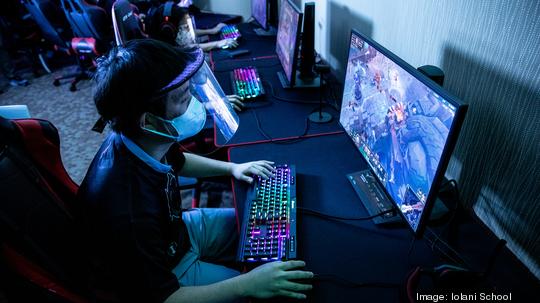
Early on, Iolani Esports Director Gabriel Yanagihara emphasized student leadership in the program and he’s seen that flourish over the last two years, with the emphasis on building teamwork and technical skills they can take to college.
While Iolani has enjoyed in-person instruction and activities, public schools did not for most of the spring. Yanagihara has offered assistance for schools trying to set up or jump-start their esports program, should they want the help.
For some schools, having an esports team comes down to whether a teacher has a passion for gaming and will support it.
That’s the case for Maui High coach Richard Pacheco. He observed teams on his island banding together when play went remote in spring 2020, and his roughly 50 players continued to participate using their own equipment, when they could.
Some are tech-savvy, Pacheco said, and share that with their teammates. “It takes a lot of skill and practice,” Pacheco said.
